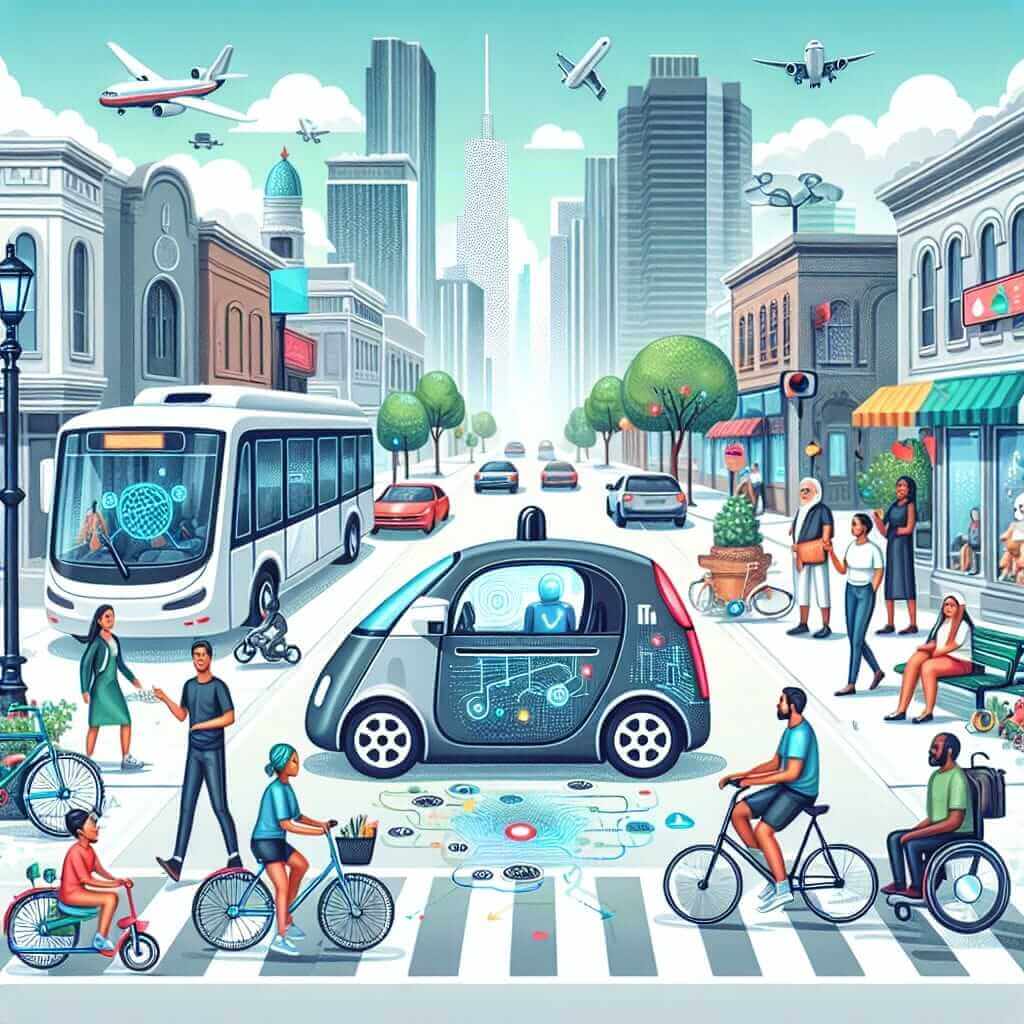The IELTS Reading section requires candidates to read passages and answer questions to test their comprehension. Topics often include current and relevant issues, and one such timely subject is autonomous vehicles. Given the increasing presence of self-driving cars, understanding the ethical implications of autonomous vehicles is becoming more relevant. This topic has been featured in past IELTS exams, and its growing importance suggests it could appear in future tests.
Nội dung bài viết
In this article, we’ll provide an in-depth example of an IELTS Reading text, comprehensive questions, detailed answers, common mistakes, vocabulary, and grammar tips.
IELTS Reading Passage: “What Are the Ethical Implications of Autonomous Vehicles?”
Reading Passage
As the landscape of transportation evolves with advancements in autonomous vehicle technology, the question of ethical implications has come to the forefront. The advent of self-driving cars promises to revolutionize public and private transportation, but it also raises significant ethical dilemmas.
One primary ethical concern is the decision-making algorithms programmed into these vehicles. In critical situations, how should an autonomous vehicle prioritize safety? For instance, should an AI-driven car prioritize the passengers inside over pedestrians or other motorists?
Additionally, the accountability in accidents involving autonomous vehicles is another complex issue. Traditional traffic accidents usually involve human error, but with self-driving cars, the responsibility may shift to manufacturers’ software developers or the individuals who maintain the vehicle’s systems. There is also the risk of cyber-attacks, which could compromise the safety of passengers and other road users.
Another ethical dilemma revolves around job displacement. As autonomous vehicles become more prevalent, professions such as truck driving and taxi services could face significant workforce reductions, impacting the livelihood of millions globally. Furthermore, there are concerns about ensuring equitable access to this technology, preventing a societal divide between those who can afford autonomous vehicles and those who cannot.
In conclusion, while autonomous vehicles offer various benefits, including the potential to reduce traffic accidents and lower transportation costs, the ethical implications present a complex challenge that requires careful consideration and regulation.
Reading Questions
Multiple Choice
-
What is a primary ethical concern regarding autonomous vehicles?
- A. Environmental impact
- B. Decision-making algorithms
- C. Fuel efficiency
- D. Comfort of passengers
-
Who may be held accountable for accidents involving autonomous vehicles?
- A. The passengers
- B. The vehicle’s manufacturer or software developers
- C. The insurance companies
- D. The police
True/False/Not Given
-
Autonomous vehicles are currently responsible for the majority of traffic accidents.
- A. True
- B. False
- C. Not Given
-
Cyber-attacks on autonomous cars can jeopardize the safety of passengers.
- A. True
- B. False
- C. Not Given
Matching Information
Match the ethical issues with their corresponding descriptions:
-
Decision-making algorithms
-
Accountability in accidents
-
Job displacement
-
Equitable access
- i. Concerns about fair distribution of technology
- ii. Responsibility for accidents involving self-driving cars
- iii. Reducing the need for human drivers in various industries
- iv. Critical situational prioritization by AI
Sentence Completion
- One of the benefits of autonomous vehicles is the potential to __.
Short-answer Questions
- What is a societal concern related to the widespread use of autonomous vehicles?
Answer Key
- B. Decision-making algorithms
- B. The vehicle’s manufacturer or software developers
- B. False
- A. True
- iv. Critical situational prioritization by AI
- ii. Responsibility for accidents involving self-driving cars
- iii. Reducing the need for human drivers in various industries
- i. Concerns about fair distribution of technology
- reduce traffic accidents and lower transportation costs
- Job displacement and equitable access
Common Mistakes
- Misinterpreting Questions: Many candidates misinterpret True/False/Not Given questions, leading to incorrect answers. Carefully discern what the passage explicitly states versus what is implied.
- Vocabulary Confusion: Words like “accountability” or “equitable” may confuse non-native speakers. It’s crucial to understand such terms in context.
- Time Management: Spending too much time on difficult questions can detract from overall performance. Practice under timed conditions.
Vocabulary
- Algorithm (noun) /ˈæl.ɡə.rɪ.ðəm/: A set of rules for solving a problem in a finite number of steps.
- Example: The decision-making algorithms of autonomous cars are ethically challenging.
- Accountability (noun) /əˌkaʊn.təˈbɪl.ə.ti/: The fact or condition of being responsible for something.
- Example: Determining accountability in the case of autonomous vehicle accidents is complicated.
- Equitable (adjective) /ˈɛkwɪtəbl/: Fair and impartial.
- Example: Equitable access to autonomous vehicles is necessary to avoid societal divides.
Grammar
- Conditional Sentences: Conditional sentences are used to discuss possible outcomes. For example:
- If an autonomous vehicle is involved in an accident, liability may fall on the manufacturer.
- Subjunctive Mood: Used in hypothetical situations, the subjunctive mood expresses doubt or wishfulness.
- It is crucial that the algorithms be designed ethically.
Final Tips
- Practice Regularly: Consistent practice with various texts enhances comprehension skills.
- Expand Vocabulary: Understand and practice complex vocabulary in context.
- Time your Practice: Simulate exam conditions to improve time management.
- Read Widely: Exposure to different topics, especially current issues such as autonomous vehicles, prepares you for diverse reading passages.
For deeper insights into topics akin to autonomous vehicles, you may reference what are the challenges of regulating autonomous vehicles, the social implications of autonomous vehicles, or the implications on transportation. These can broaden your understanding and provide more practice material.

By consistently practicing and studying in the mentioned ways, you’ll be well-prepared to tackle Reading passages on current and relevant themes such as autonomous vehicles in the IELTS exam.